How the Bible became conservative book bans' unintended target
As a Republican-led push to purge books picks up steam, some communities are zeroing in on a text that's chock full of sex and violence

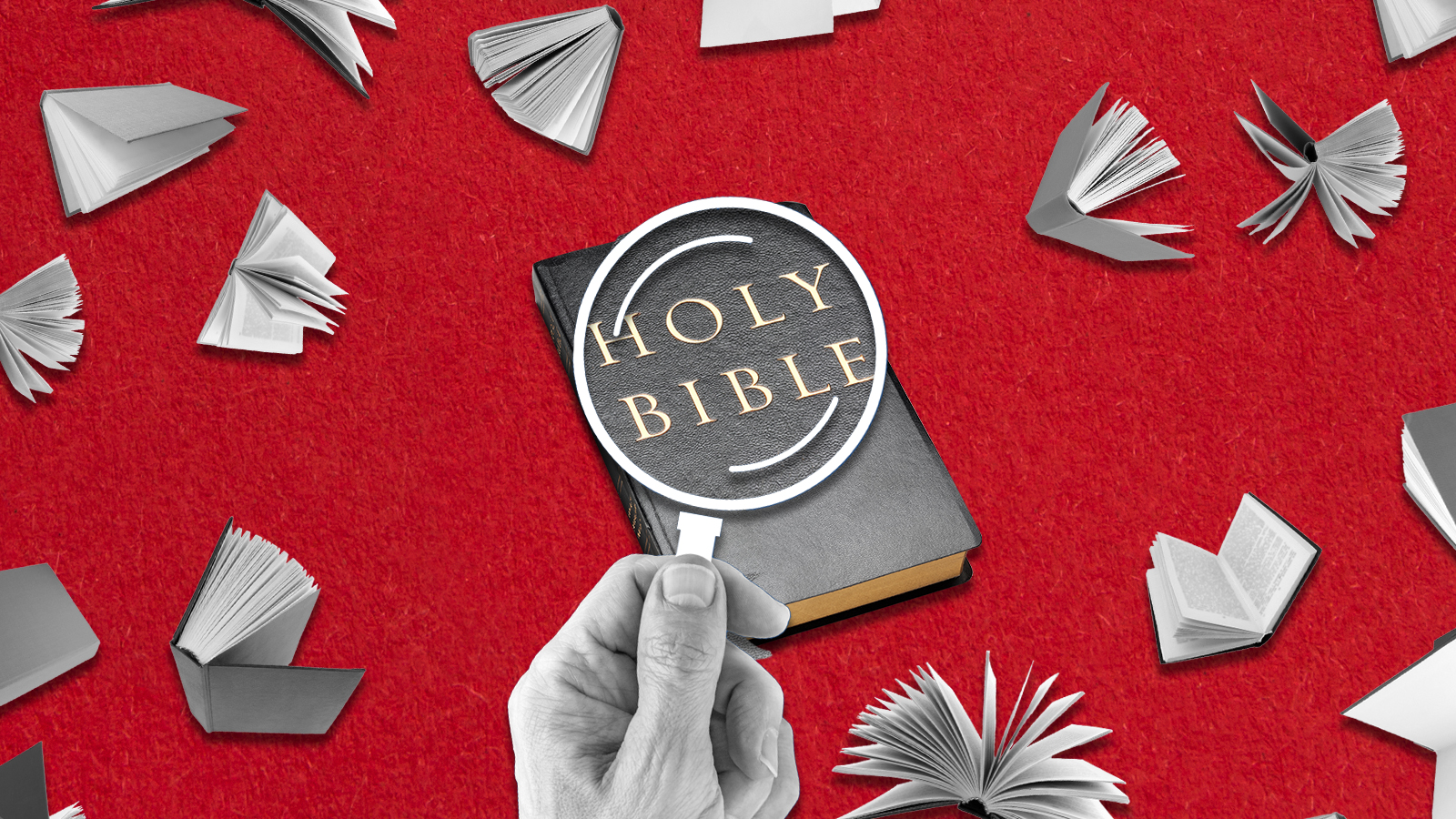
A free daily email with the biggest news stories of the day – and the best features from TheWeek.com
You are now subscribed
Your newsletter sign-up was successful
The ongoing efforts in deep-red states like Florida and Texas to ban books deemed culturally or sexually inappropriate for their depictions of racial injustices and LGBTQ+ content have spawned a surprising form of retaliation. Parents and community members alarmed by what they see as right-wing censorship have begun targeting the Bible for removal from schools and libraries, arguing the book's graphic depictions of sex and violence make it just as subversive and inappropriate as the materials being banned under conservative and often overtly evangelical Christian auspices. In one Utah community, the Bible has been permanently pulled from elementary school shelves, while other states have been pressured to review whether the Bible violates any of their newly passed restrictions on educational materials. All told, access to the Bible has become an ironic and surprisingly effective tool in the growing fight over who controls what children read.
The Bible is too "vulgar or violent" for some schools
Casual observers might be hard-pressed to distinguish a recent article from the humor website McSweeney's titled "Smutty books have no place in our schools. It's time to ban the Bible" from a very real, if tongue firmly in cheek, petition submitted recently to Utah's Davis School District to remove the King James Version from classrooms. The request follows a 2022 state ban on allegedly explicit reading material pushed by the conservative "Utah Parents United" advocacy group — an effort that "left off one of the most sex-ridden books around," the anonymous petitioner wrote in their official complaint, the Bible. Citing "incest, onanism, bestiality, prostitution, genital mutilation, fellatio, dildos, rape and even infanticide" as evidence that the "the Bible, under Utah Code Ann. § 76-10-1227, has 'no serious values for minors' because it's pornographic by our new definition," the petitioners concluded that "this should be a slamdunk [sic]." It turns out, they were correct.
Ceding that the Bible contained "vulgarity or violence," a representative from Utah's Davis School District confirmed to the Salt Lake City Tribune in June that the book would be removed from elementary and middle school shelves. It remains available for upper school students. The Torah and Quran have reportedly not been challenged, although just days after the Bible's ban was announced, a similar petition was filed to restrict the Book of Mormon.
The Week
Escape your echo chamber. Get the facts behind the news, plus analysis from multiple perspectives.

Sign up for The Week's Free Newsletters
From our morning news briefing to a weekly Good News Newsletter, get the best of The Week delivered directly to your inbox.
From our morning news briefing to a weekly Good News Newsletter, get the best of The Week delivered directly to your inbox.
Bible bans and reviews are part of a larger national trend
Aside from Utah's recent ban, the Bible has been pulled from school shelves for review, if not outright removal, in Florida, Missouri and Texas. While "not frequent," this "kind of challenge where there's criticism with the contents of the Bible, in response to an effort to remove other books from the library on the same grounds, is something we've seen in the past," Deborah Caldwell-Stone, the director of the American Library Association's Office for Intellectual Freedom, said. It's "a reaction to efforts to ban so many books" across the country, Jonathan Friedman, the director of the Free Expression and Education program for the free speech advocacy group PEN America, agreed.
While Utah's ban is still in effect, the efforts to review and restrict the Bible elsewhere have largely resulted in the material returning to library and classroom shelves after review by the respective supervisory agencies. Nevertheless, the broader point being made is that far-reaching efforts to restrict reading materials in the service of limiting educational inquiry at large will inevitably "sweep up ideas and materials that you actually agree with," Caldwell-Stone said.
What has the reaction been?
Conservatives have pushed back on the effort to ban the Bible, accusing it of "trying to minimize the real concerns of parents," according to Utah Parents United curriculum director Brooke Stephens. Utah Republican lawmaker Ken Ivory seemingly agreed, complaining that the "antics" ultimately "drain school resources." However, in a lengthy statement posted to his Facebook page, Ivory, the legislator who initially sponsored Utah's restrictive book criteria, ultimately accepted the Davis School District's decision, ceding that the King James translation of the Bible can be a "challenging read for elementary or middle school children on their own" and "is best taught, and best understood, in the home, and around the hearth, as a family."
Still, education officials who remove material like the Bible for "fear that it might contain an image that could violate state law" shocks Caldwell-Stone. "It speaks to the heart of mass censorship."
A free daily email with the biggest news stories of the day – and the best features from TheWeek.com
Rafi Schwartz has worked as a politics writer at The Week since 2022, where he covers elections, Congress and the White House. He was previously a contributing writer with Mic focusing largely on politics, a senior writer with Splinter News, a staff writer for Fusion's news lab, and the managing editor of Heeb Magazine, a Jewish life and culture publication. Rafi's work has appeared in Rolling Stone, GOOD and The Forward, among others.
-
 Political cartoons for February 12
Political cartoons for February 12Cartoons Thursday's political cartoons include a Pam Bondi performance, Ghislaine Maxwell on tour, and ICE detention facilities
-
 Arcadia: Tom Stoppard’s ‘masterpiece’ makes a ‘triumphant’ return
Arcadia: Tom Stoppard’s ‘masterpiece’ makes a ‘triumphant’ returnThe Week Recommends Carrie Cracknell’s revival at the Old Vic ‘grips like a thriller’
-
 My Father’s Shadow: a ‘magically nimble’ film
My Father’s Shadow: a ‘magically nimble’ filmThe Week Recommends Akinola Davies Jr’s touching and ‘tender’ tale of two brothers in 1990s Nigeria
-
 Democrats win House race, flip Texas Senate seat
Democrats win House race, flip Texas Senate seatSpeed Read Christian Menefee won the special election for an open House seat in the Houston area
-
 What have Trump’s Mar-a-Lago summits achieved?
What have Trump’s Mar-a-Lago summits achieved?Today’s big question Zelenskyy and Netanyahu meet the president in his Palm Beach ‘Winter White House’
-
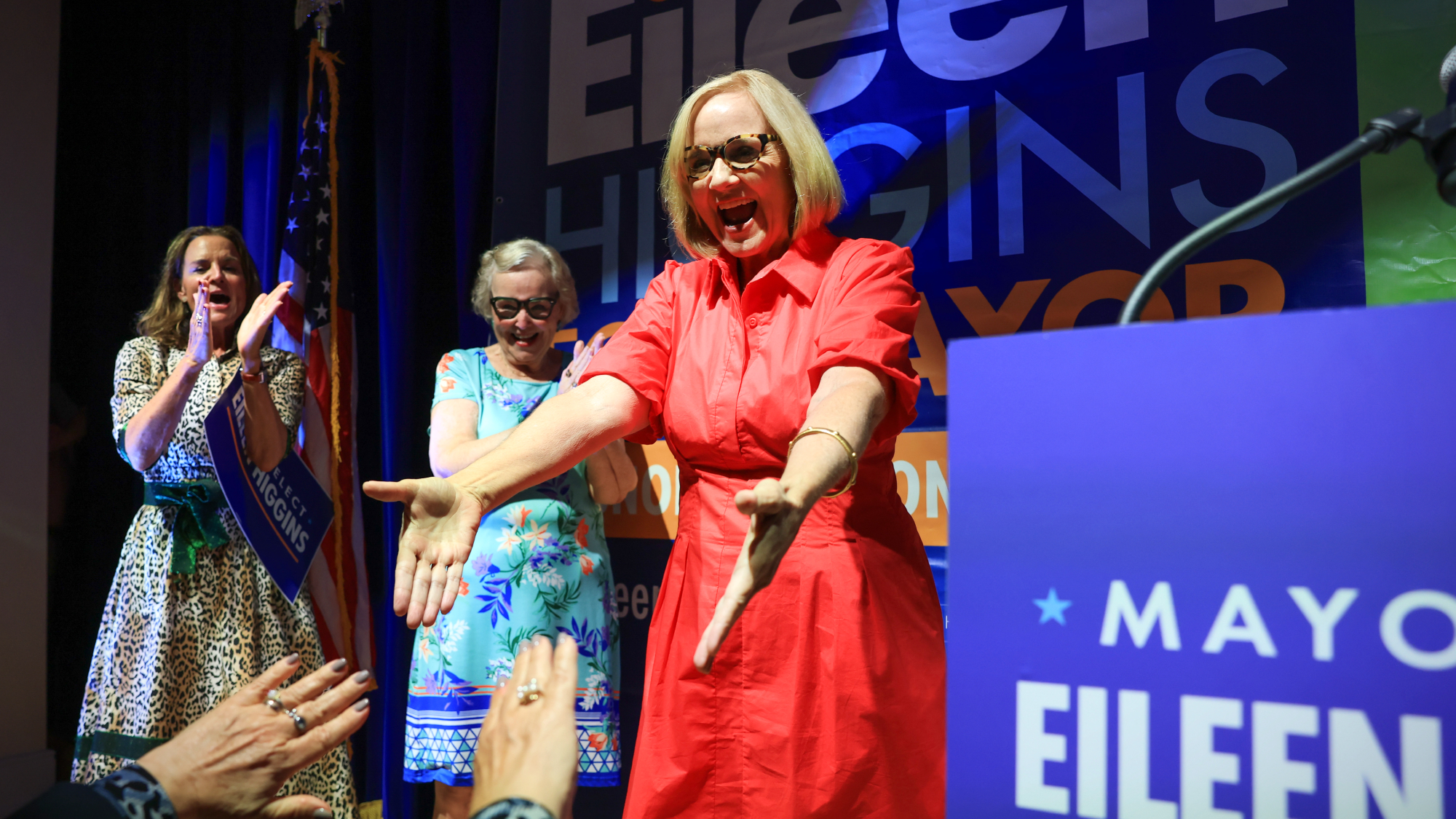 Miami elects first Democratic mayor in 28 years
Miami elects first Democratic mayor in 28 yearsSpeed Read Eileen Higgins, Miami’s first woman mayor, focused on affordability and Trump’s immigration crackdown in her campaign
-
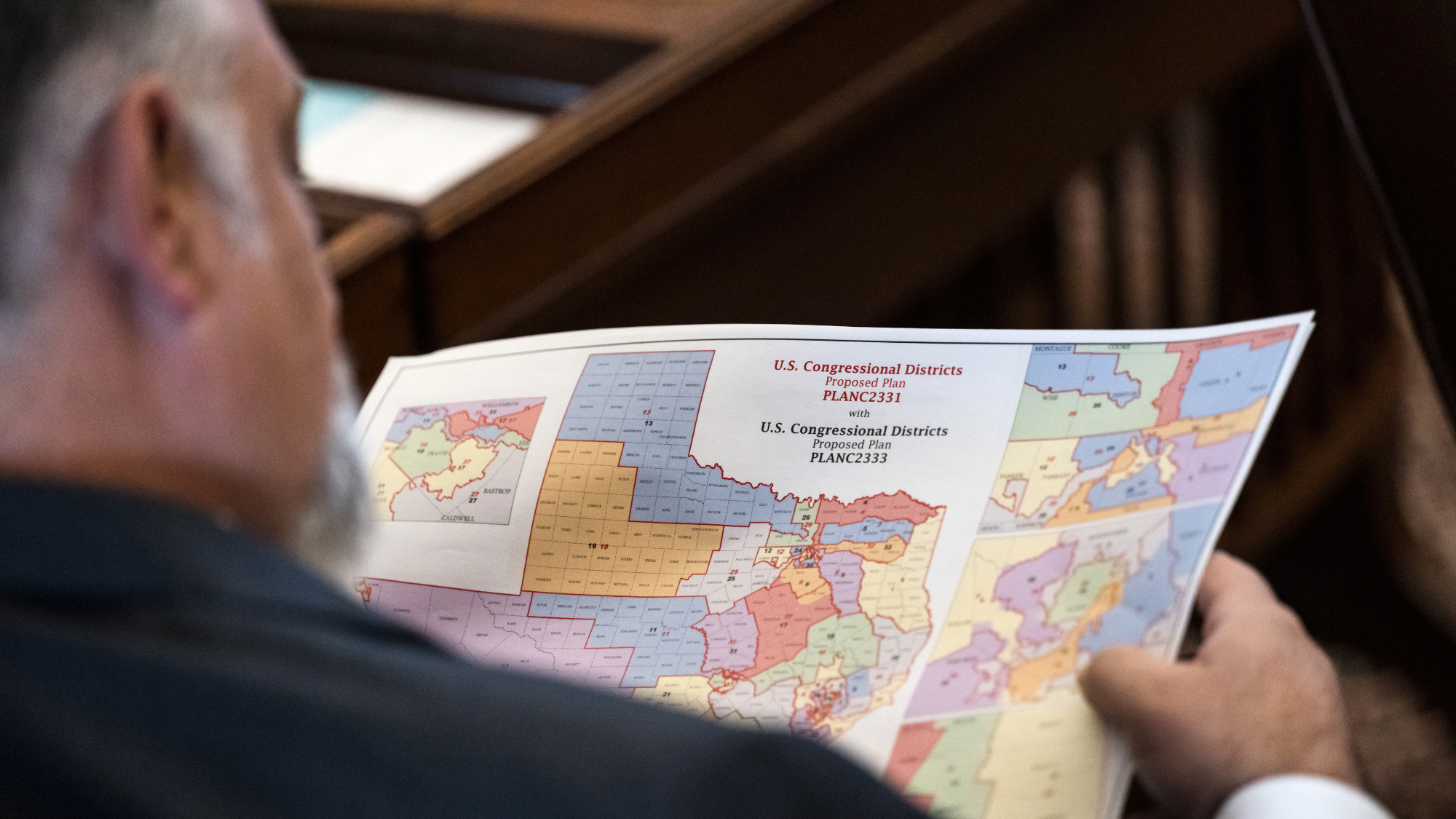 Supreme Court revives Texas GOP gerrymander
Supreme Court revives Texas GOP gerrymanderSpeed Read Texas Republicans can use the congressional map they approved in August at President Donald Trump’s behest
-
 Trump pardons Texas Democratic congressman
Trump pardons Texas Democratic congressmanspeed read Rep. Henry Cuellar was charged with accepting foreign bribes tied to Azerbaijan and Mexico
-
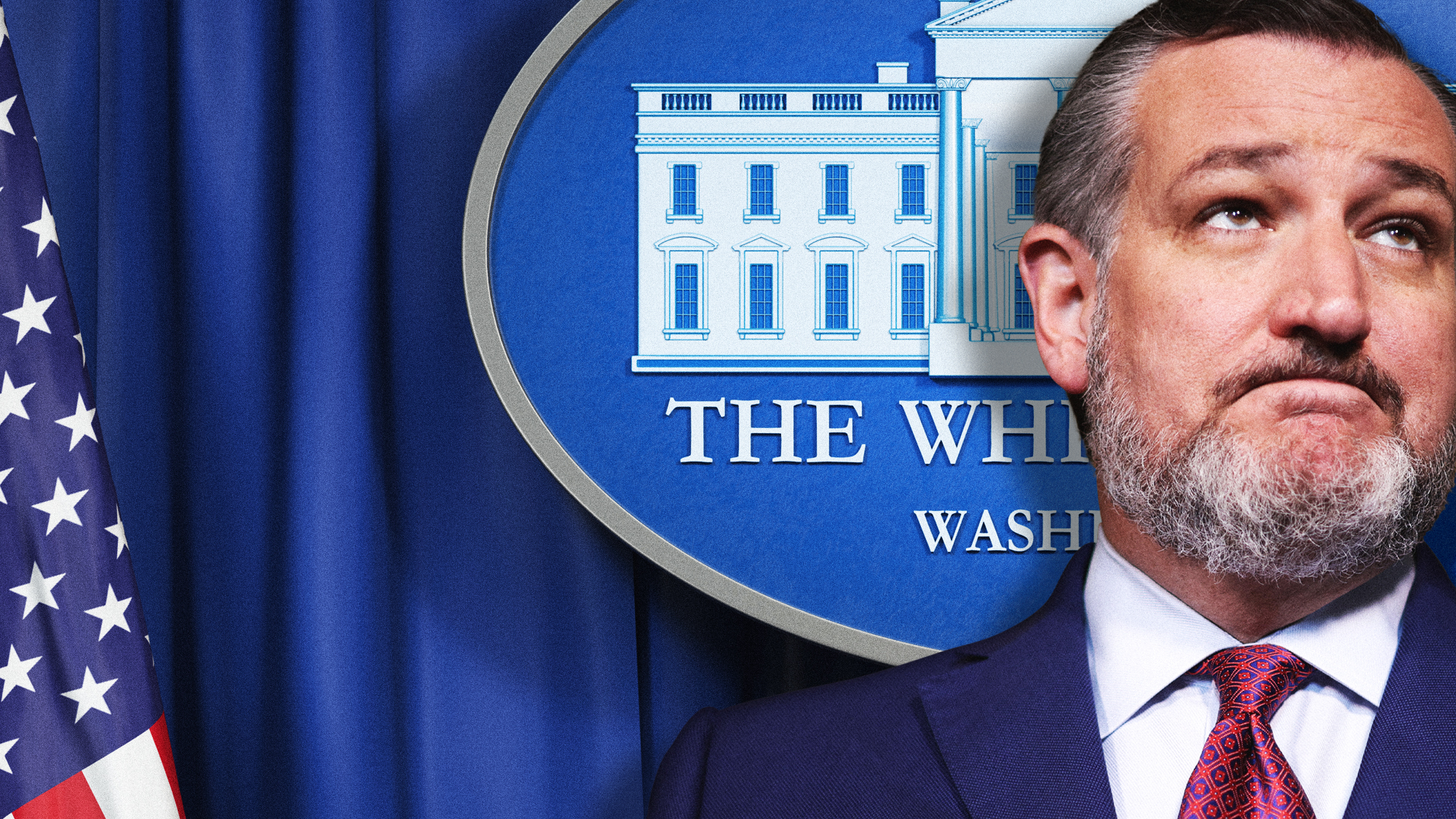 Ted Cruz teases big 2028 moves
Ted Cruz teases big 2028 movesIN THE SPOTLIGHT The Texas Republican is playing his cards close to his chest, even as others in Washington start looking for hints about the arch-conservative’s future
-
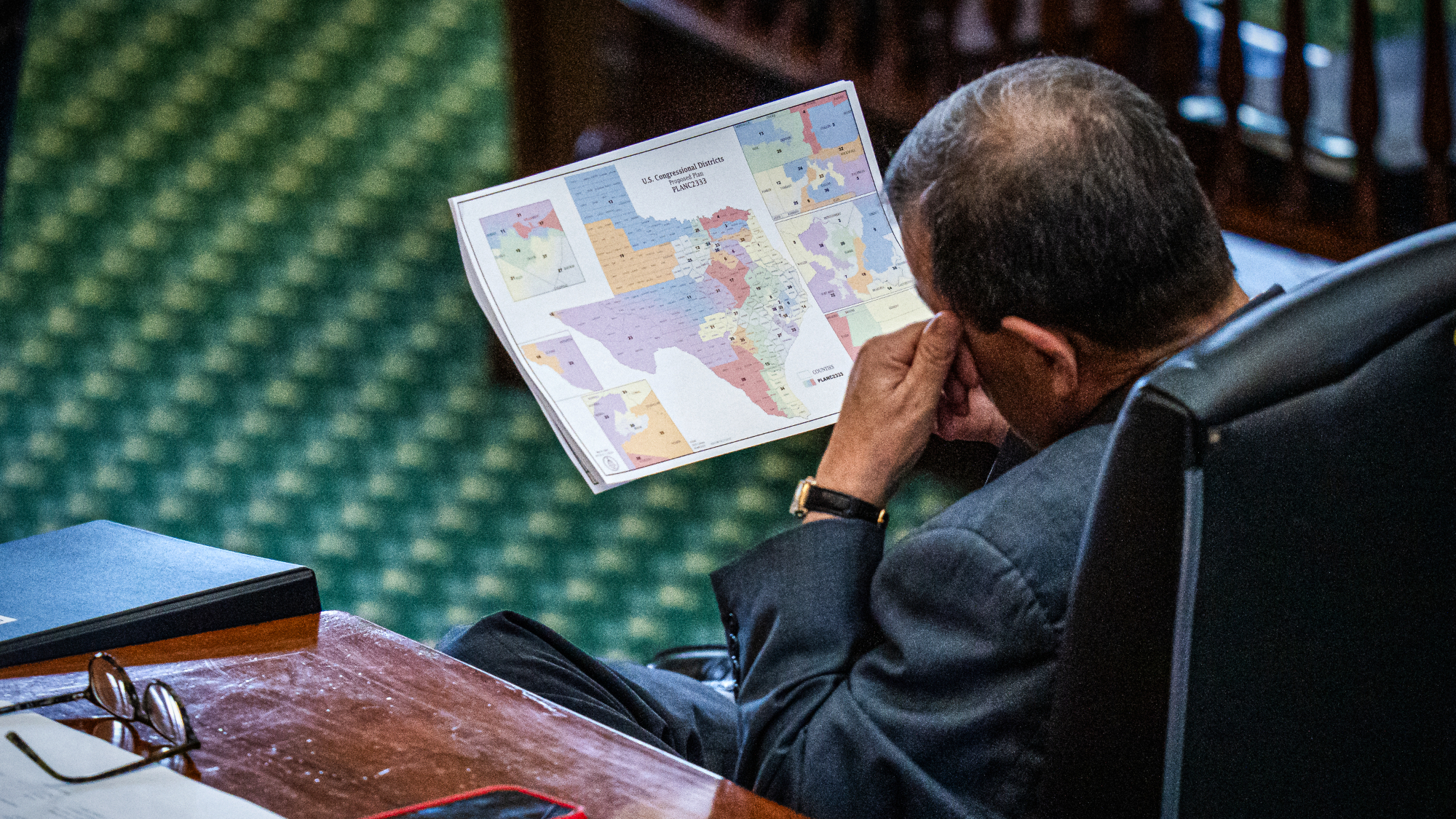 Court strikes down Texas GOP gerrymander
Court strikes down Texas GOP gerrymanderSpeed Read The Texas congressional map ordered by Trump is likely an illegal racial gerrymander, the court ruled
-
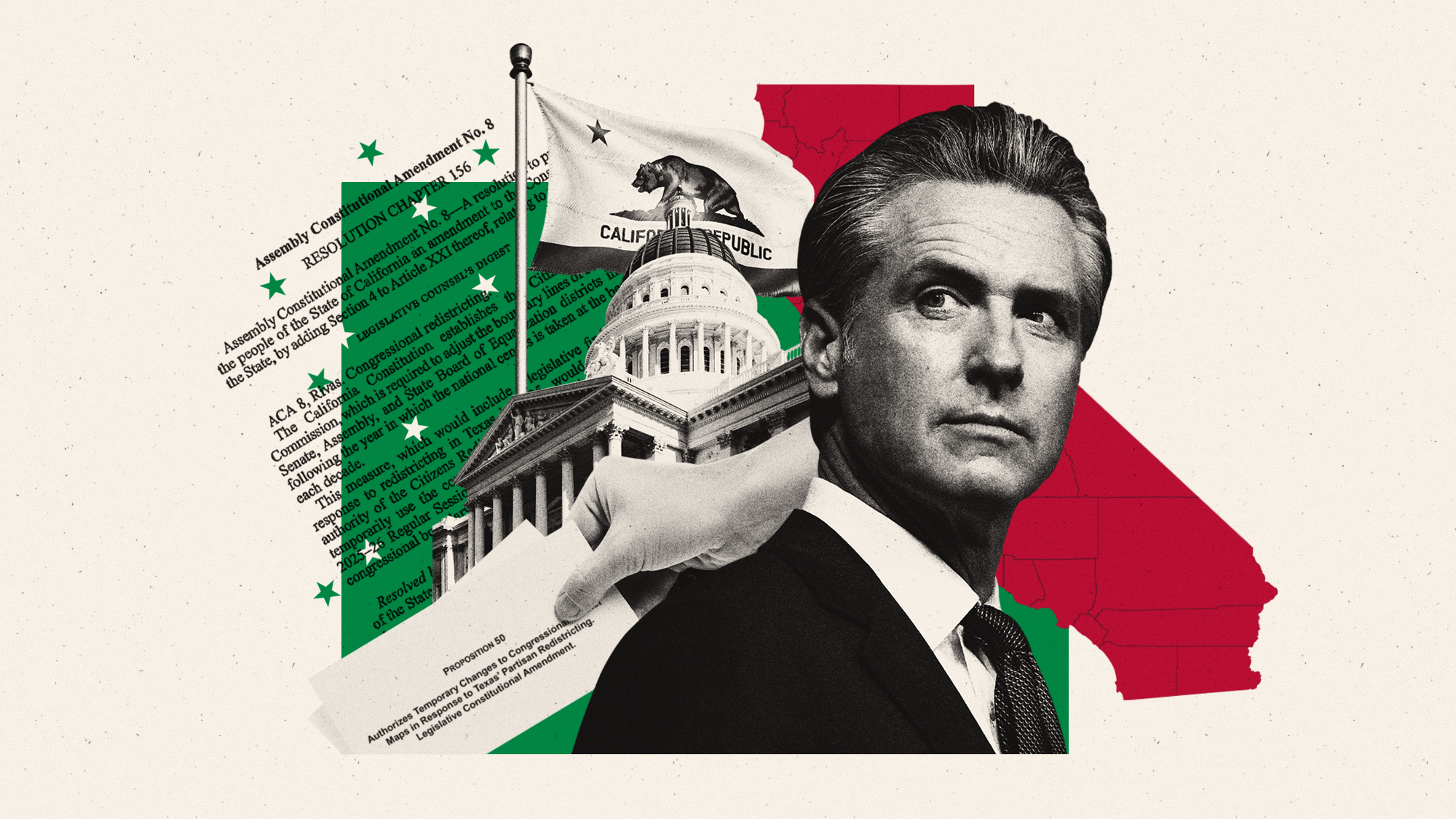 Will California’s Proposition 50 kill gerrymandering reform?
Will California’s Proposition 50 kill gerrymandering reform?Talking Points Or is opposing Trump the greater priority for voters?
